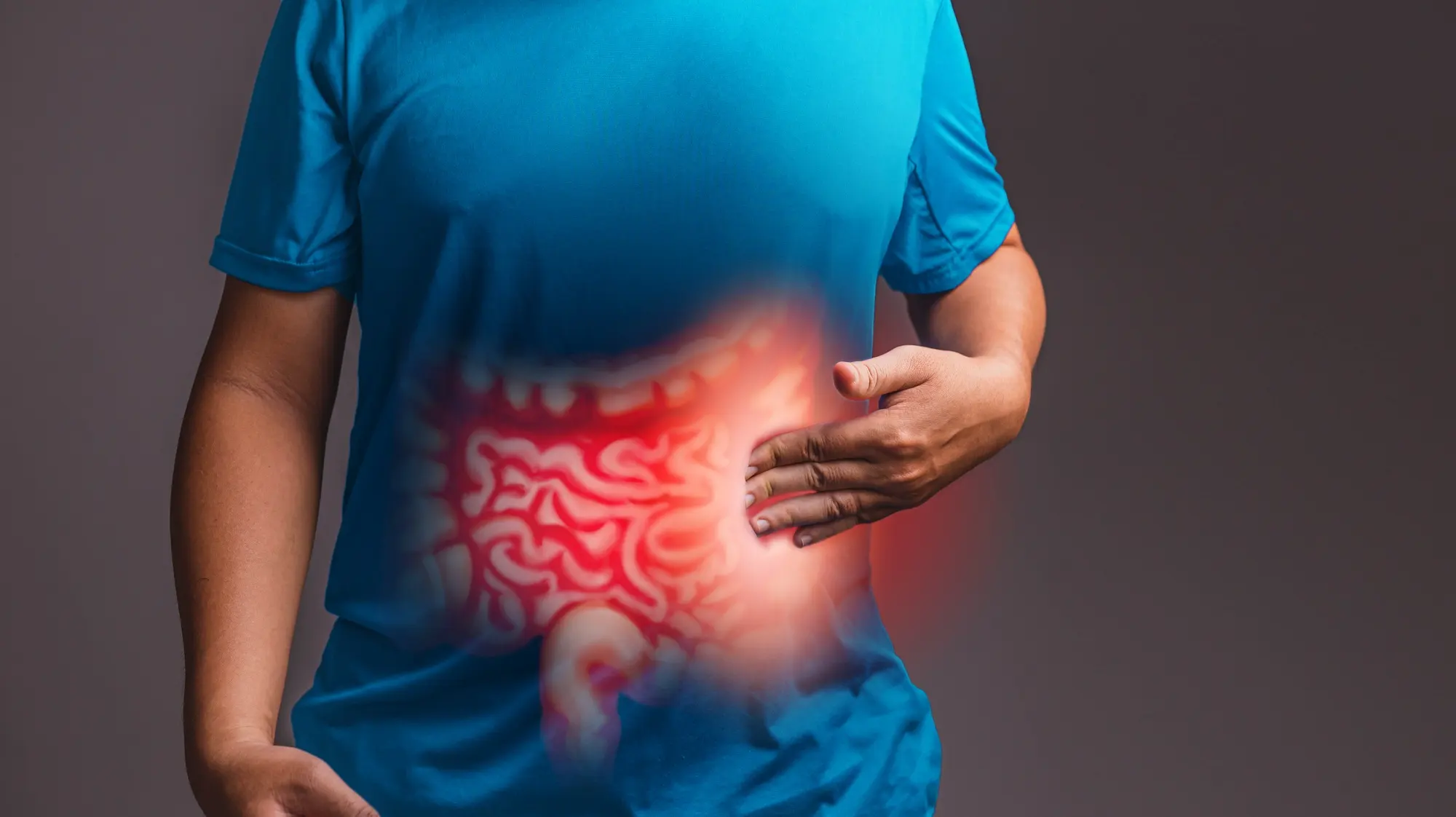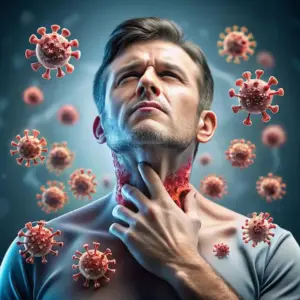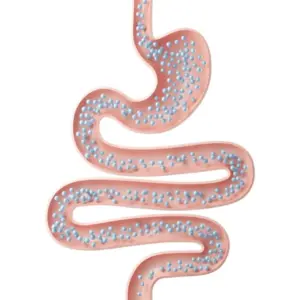Understanding Irritable Bowel Syndrome Symptoms and Management
Discover causes, symptoms, diagnosis, and management of irritable bowel syndrome for better digestive health and comfort.

Irritable Bowel Syndrome
Irritable Bowel Syndrome (IBS) is a functional gastrointestinal disorder that affects how the bowel works, without causing structural damage. It leads to abdominal discomfort, bloating, irregular bowel movements, and alternating episodes of diarrhea and constipation. Though not life-threatening, IBS can significantly affect a person’s quality of life if left untreated.
At VS Hospitals, patients receive advanced and compassionate care for IBS through a multidisciplinary team of gastroenterologists, dietitians, and psychologists. Using evidence-based diagnostic tools and holistic treatment plans, the hospital focuses on restoring digestive balance, relieving symptoms, and improving overall well-being.

Early Detection Saves Lives
Early detection and treatment are crucial for improving the chances of survival. If you notice any concerning symptoms, consult a healthcare provider immediately.
Signs and Symptoms
Abdominal pain or cramping
Often relieved after a bowel movement.
Bloating and gas
A feeling of fullness or swelling in the abdomen.
Irregular bowel habits
Alternating between diarrhea and constipation.
Mucus in stool
A typical sign of bowel irritation.
Urgent or incomplete bowel movement
The need to pass stool frequently or feeling unsatisfied after doing so.
Fatigue and weakness
Due to disturbed digestion or poor nutrient absorption.
Nausea after meals
Triggered by an overly sensitive digestive tract.
Mental distress
Anxiety or stress may worsen the symptoms.
Blood in Urine
Hematuria - pink, red, or dark urine, the most common symptom
Frequent Urination
Feeling the need to urinate frequently, even when bladder is not full
Painful Urination
Experiencing pain or burning sensation while urinating
Back or Pelvic Pain
Pain that occurs as the cancer grows and spreads
Unexplained Weight Loss
Significant weight loss not related to diet or exercise
Fatigue
Feeling unusually tired or weak without a clear cause
If these symptoms persist for more than a few weeks, a consultation with gastroenterology experts at VS Hospitals is recommended for accurate diagnosis and treatment.
Meet Our Expert Irritable Bowel Syndrome Specialists
Risk Factors
Smoking
Smoking is one of the leading causes of bladder cancer. Chemicals in tobacco smoke can damage the lining of the bladder, increasing the risk.

Gender
Men are at a higher risk of developing bladder cancer than women.

Chronic Bladder Infections or Inflammation
Conditions such as bladder infections and long-term bladder inflammation can increase the risk.

Exposure to Chemicals
Prolonged exposure to certain chemicals, especially those used in the dye industry, rubber production, and chemical manufacturing, increases the risk.

Stress and anxiety
Emotional stress significantly affects bowel function.

Food intolerance
Certain foods such as dairy, caffeine, or spicy meals can trigger symptoms.

Hormonal changes
Women are more prone to IBS, especially during menstruation.

Post-infection syndrome
IBS can develop after severe food poisoning or gut infection.

Imbalance in gut bacteria
Overgrowth or deficiency of certain bacteria disrupts digestion.

Sedentary lifestyle
Lack of physical activity slows down bowel movements.

Family history
Genetics may increase susceptibility to bowel sensitivity.

Long-term medication
Certain antibiotics or antidepressants can alter gut motility.

Irritable Bowel Syndrome
Diet and Nutrition
Prevention
Diagnosis
Key Services
Key Facilities
Diet management is central to controlling IBS symptoms. The dietitians at VS Hospitals develop personalized meal plans focusing on gut-friendly nutrition and trigger control.
- Follow a Low FODMAP Diet: Limit fermentable foods like beans, onions, and wheat that produce gas.
- Eat Small, Frequent Meals: Prevents bloating and excessive intestinal contractions.
- Increase Soluble Fiber: Oats, bananas, and carrots aid digestion and prevent constipation.
- Avoid High-Fat and Spicy Foods: Reduces irritation and bloating.
- Stay Hydrated: Drink 2–3 liters of water daily to maintain bowel regularity.
- Limit Caffeine and Alcohol: Both stimulate the intestines and cause diarrhea.
- Include Probiotics: Yogurt, kefir, and supplements restore healthy gut flora.
- Avoid Artificial Sweeteners: Sorbitol and aspartame may trigger gas and cramps.
- Eat Mindfully: Chew slowly and avoid eating when stressed.
- Identify Trigger Foods: Keep a food diary to recognize and eliminate problem items.
At VS Hospitals, diet modification is supported by nutritional counseling, regular follow-ups, and patient education, ensuring sustained digestive balance and comfort.
Though IBS cannot always be prevented, symptoms and flare-ups can be minimized through proactive lifestyle changes and medical monitoring.
- Manage Stress: Yoga, meditation, and therapy reduce anxiety and improve gut-brain balance.
- Maintain Regular Meals: Avoid skipping meals or eating large portions at once.
- Stay Active: Regular physical activity stimulates bowel movement and reduces tension.
- Avoid Overuse of Laxatives: May worsen bowel sensitivity in the long term.
- Get Adequate Sleep: Rest promotes hormonal balance and digestive stability.
- Stay Hydrated: Fluids help soften stool and reduce bloating.
- Quit Smoking: Tobacco irritates the digestive tract and increases acid production.
- Seek Early Treatment for Infections: Prevents post-infectious IBS symptoms.
- Mindful Eating Habits: Avoid distractions while eating to reduce air swallowing and gas formation.
- Regular Check-Ups: Early consultation with gastro specialists ensures proper diagnosis and prevention of chronic irritation.
The preventive care model at VS Hospitals encourages healthy habits and early lifestyle correction for long-term relief from IBS symptoms.
IBS is primarily diagnosed through a combination of clinical evaluation, medical history, and specific diagnostic tests that rule out other gastrointestinal conditions. VS Hospitals employs advanced, minimally invasive diagnostic techniques for accurate and rapid identification.
- Physical Examination: Doctors assess abdominal tenderness, bowel sounds, and overall digestive health while reviewing the patient’s dietary habits, stress levels, and bowel movement patterns.
- Blood Tests: These tests help identify infection, inflammation, or anemia and assist in ruling out conditions like celiac disease and other digestive disorders.
- Stool Test: Used to check for blood, bacteria, or parasites to rule out infections or inflammatory bowel diseases that may resemble IBS symptoms.
- Colonoscopy: Recommended when patients experience rectal bleeding or unexplained weight loss, allowing direct visualization of the colon to detect ulcers, inflammation, or polyps.
- Hydrogen Breath Test: This non-invasive test detects lactose intolerance or bacterial overgrowth, which can produce symptoms similar to irritable bowel syndrome (IBS).
- Imaging Studies: Ultrasound or CT scans are performed to exclude structural problems in organs like the gallbladder or pancreas.
At VS Hospitals, every patient’s case is handled individually—using a combination of diagnostic data, lifestyle assessment, and stress analysis—to ensure the most accurate diagnosis.
VS Hospitals offers a wide range of services focused on the holistic management of Irritable Bowel Syndrome, blending medical, nutritional, and psychological care for optimal results:
- Medical Management: Specialists prescribe antispasmodic medications to ease bowel cramps, along with laxatives or anti-diarrheal drugs to regulate bowel movements.
- Dietary and Lifestyle Counseling: Patients receive individualized diet plans focusing on a low FODMAP approach, which minimizes fermentable carbohydrates.
- Psychological Support: Recognizing the gut-brain connection, VS Hospitals offers counseling sessions to address anxiety and depression related to IBS.
- Gut Microbiota Therapy: Treatment includes restoring the gut’s natural microbial balance through probiotics and prebiotics, alongside nutrition-based interventions designed to maintain a healthy and diverse microbiome.
- Integrative and Preventive Care: Focus is placed on long-term wellness through dietary balance, adequate sleep, stress control, and regular follow-ups to monitor symptom improvement and digestive health.
- Personalized Treatment Approach: At VS Hospitals, every IBS case is treated as unique. A multidisciplinary team of gastroenterologists, dietitians, and psychologists collaborate to deliver holistic, compassionate care addressing both the physical and emotional aspects of the condition.
VS Hospitals houses advanced facilities for the diagnosis and treatment of gastrointestinal disorders, ensuring every patient receives precise, comfortable, and holistic care.
- Dedicated Gastroenterology Department: Managed by expert specialists experienced in IBS and gut motility disorders.
- Advanced Endoscopy and Colonoscopy Suites: Equipped with high-definition scopes for accurate assessment.
- Comprehensive Diagnostic Laboratory: Performs blood, stool, and microbiological analyses with quick turnaround times.
- Imaging and Radiology Unit: Ultrasound, CT, and MRI scans for gastrointestinal evaluation.
- Diet and Nutrition Center: Personalized meal planning and food allergy testing for digestive health.
- Psychological Counseling and Stress Management Unit: Addresses the emotional and behavioral aspects of IBS.
- 24/7 Emergency Support: For patients experiencing severe abdominal pain or dehydration.
- Inpatient and Daycare Units: Comfortable recovery and observation facilities.
- Rehabilitation and Lifestyle Coaching: Helps patients adopt sustainable healthy routines.
At VS Hospitals, cutting-edge technology is combined with compassionate care to deliver world-class treatment outcomes for all gastrointestinal conditions.
Top Medical Facilities at Our Multispeciality Hospital – Here’s What Makes Us Different!
Ready to Begin Your Irritable Bowel Syndrome Care Journey?
Learn More About Irritable Bowel Syndrome Care
Frequently Asked Questions
IBS is caused by abnormal muscle contractions, stress, and an imbalance in gut bacteria. Certain foods or hormonal changes can trigger flare-ups. At VS Hospitals, experts identify each patient’s unique triggers through advanced diagnostics and provide personalized treatment plans that target both the digestive and emotional aspects of the condition.
VS Hospitals offers a combination of medical therapy, lifestyle changes, and nutritional guidance. Treatment includes antispasmodics, probiotics, low-FODMAP diet plans, and stress management techniques. The hospital’s integrated approach ensures long-term relief, better digestion, and improved quality of life for every IBS patient.
There’s no complete cure for IBS, but it can be effectively managed with the right treatment. At VS Hospitals, long-term management focuses on symptom control, stress reduction, and dietary balance. Most patients lead normal, active lives with minimal discomfort through consistent medical and lifestyle support.
